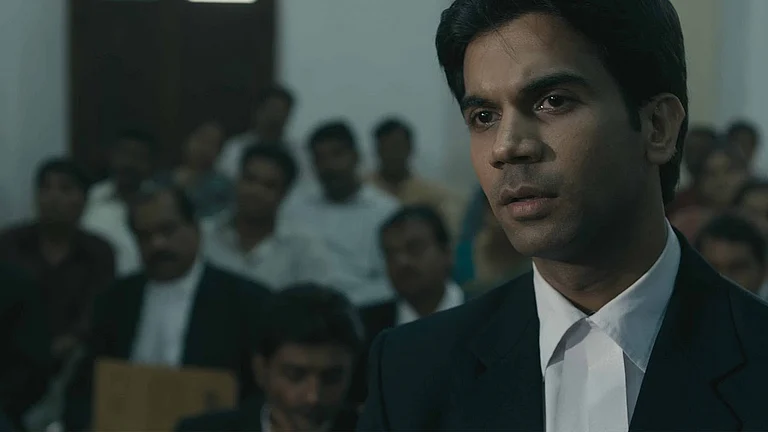In an interview with Lachmi Deb Roy, actor Shweta Tripathi talks about Cargo, a science fiction blended with mythology, and also on the toxic environment created by media trials.
On Cargo
The Indian audience is extremely intelligent and there is so much good content available, that there is something for everyone and everything is at your fingertips.
Now, how I got the film is a story. When I met Arati Kadav, it was literally love at first sight. Both of us knew that we wanted to work with each other. And thankfully she had seen Masaan and one thing the film did for me was it gave me validation as an actor, because whoever saw it loved the film and my character as Shalu Gupta. When the script of Cargo came to me, the character’s name was Shweta because Arati wanted me to be a part of it. One of the biggest compliments as an actor is when somebody writes a part keeping you in mind. I also wanted to do justice to what the writer imagined the character to be. How complex or simple the story might be, Arati Kadav’s stories are always out of the world because I have never met anybody who sees the world through the lens that she does. So, there was a certain energy and literally it was a step into the unknown that I wanted to take with her.
On Mirzapur Season 2
It’s releasing on October 23. Playing a role in Mirzapur was one of the most satisfying experiences I have had as an actor. The character I am playing in Season 2 is very different from what I had been playing in Season 1. I had to literally re-invent myself. My character ‘Golu’ in Mirzapur has changed a lot because of what happened in Season 1. When you do a project and when you are done with it, there is a closure and getting back to your character after a year-and-a-half is a little challenging.
That is why I find series more challenging than films. And for series you are making content for six to eight hours and that in itself is more difficult than film content. As an actor in series, there is so much more to sink your teeth in because there is so much to do. What is most challenging about series is you have to make your audience come back episode after episode.
On the lockdown
I saw everybody cook, bake and make coffee. I tried making coffee and what a disaster it was. That’s when I realised that social media is there to get motivated and inspired, but no one should ever feel pressurised to do something because someone else is doing it. So, what I learnt during lockdown is do what makes me happy. And a lot of us look for validation on social media on the number of likes we get; I don’t think that is the right measure for quality. The best thing about lockdown is, I have done the majority of the work during lockdown. We shot an entire series at home, The Gone Game. All the shots were taken by my husband and we were literally heading every department.
On media trials
To judge or dismiss anybody is wrong and that is unethical because we don’t have hundred per cent of the information. We know only that much as has been told by the media; on the basis of assumption, you cannot make any conclusions. It is also important to hand over the matter to the right people and not influence ourselves and each other as to what is popular or juicier, especially when it involves somebody’s personal life.


























